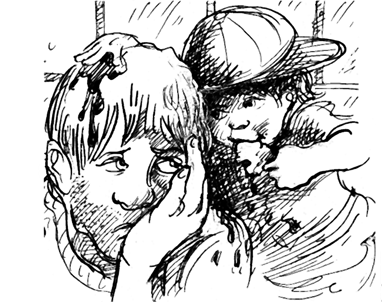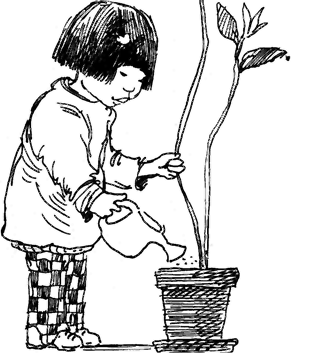|


 Fathers & Toddlers is a guide for fathers who would like to help and enjoy their toddlers fully. Toddlers aren't infants anymore. You can't just feed them a bottle and hope they'll fall asleep in your arms. Toddlers run around, open doors, and climb on furniture. They can be messy and feisty. They don't necessarily play what you want to play or sit quietly when you want them to. They can be great, but they have their impossible moments, and at that time they require a lot of understanding. Fathers & Toddlers is a guide for fathers who would like to help and enjoy their toddlers fully. Toddlers aren't infants anymore. You can't just feed them a bottle and hope they'll fall asleep in your arms. Toddlers run around, open doors, and climb on furniture. They can be messy and feisty. They don't necessarily play what you want to play or sit quietly when you want them to. They can be great, but they have their impossible moments, and at that time they require a lot of understanding.
This book is for all kinds of fathers: fathers who help to take care of their children in the evening and on weekends and fathers who take care of their children full-time at home. (For that matter, it's for mothers and baby-sitters, too. The advice in this book is for anyone and everyone who cares for children between the ages of 18 months and three years.)
The problems of the evening and weekend dad:
In some ways, it's harder for the father who works away from home and sees his child in the evening and on weekends. He doesn't get enough time to learn how to deal with toddlers. Such a father is often baffled or miffed by them. To deal with such feelings, some dads try to avoid parenting jobs by being too busy with other tasks, by not being around at all, or by using the not-my-problem and the I-don't-know-how strategies.
The not-my-problem and the I-don't-know-how strategies:
The not-my-problem strategy is when Dad notices a problem involving the toddler and tells the mother about it, the assumption being that it's not Dad's responsibility. The I-don't-know-how strategy is when Dad says he would like to help but can't because he doesn't know how. These strategies cause more problems than they solve. The toddler's problem is still there, and now Mom is annoyed. The bottom line is: mothers need help with child care, and fathers are smart to learn when to deliver and how to deliver - without complaining. Such skills may be partly instinctive, but mostly they are learned by trial and error. Hopefully, this guidebook will help you avoid many errors.
Now, nobody said that the job of taking care of toddlers is easy. It's not. Toddlers challenge one's imagination, patience, practicality, ability to plan, ability to recoup, and sense of humor.
The hard parts of being with toddlers:
You may feel frustration, the like of which you've never felt before, and anger that can make you feel violent.
But you weather these storms for the sake of your child, who is trying to grow and needs your deepest understanding.
The easy parts of being with a toddler:
Toddlers are not always impossible. They can be adorable and charming. They don't always feel like being sloppy, whiney, clingy, annoying, and loud. Sometimes they scream in the market, and other times they'll ride in your cart being as well mannered as you could ever hope for. Toddlers can be sensitive to your feelings and anxious to help you. They want to sense the organization of the world and want to be a part of it.
The secret to understanding toddlers:
Toddlers have a craving to learn and a natural ability to teach themselves. Unfortunately, what they don't have is sufficient knowledge of the world to keep themselves out of danger. You are their caretaker. The secret of caring for toddlers is to set up situations in which they can exercise their independent and curious minds.
 The chapters in this book are organized by age group, but please don't take them too seriously. Basically, the age groups are there to help you plug into your child's level; but anything you find in an earlier chapter you should feel free to do later, and anything you find in a later chapter, you should feel free to try earlier, perhaps in a modified way. Singing, humming, and scatting, for example, are recommended, but please indulge your child with your musical performances whenever you are inspired. The chapters in this book are organized by age group, but please don't take them too seriously. Basically, the age groups are there to help you plug into your child's level; but anything you find in an earlier chapter you should feel free to do later, and anything you find in a later chapter, you should feel free to try earlier, perhaps in a modified way. Singing, humming, and scatting, for example, are recommended, but please indulge your child with your musical performances whenever you are inspired.
Fathers & Toddlers is your guide to use as you like. Read it front to back or back to front - whatever works to help you enjoy your toddler and helps your toddler enjoy you.
CLICK FOR CHAPTER ONE
|

